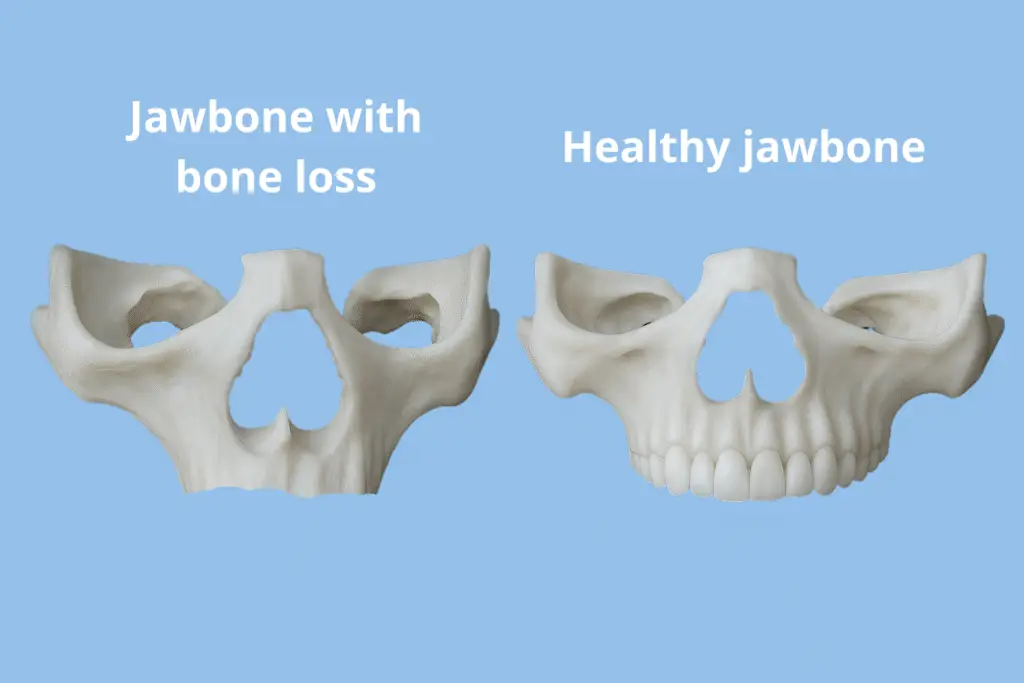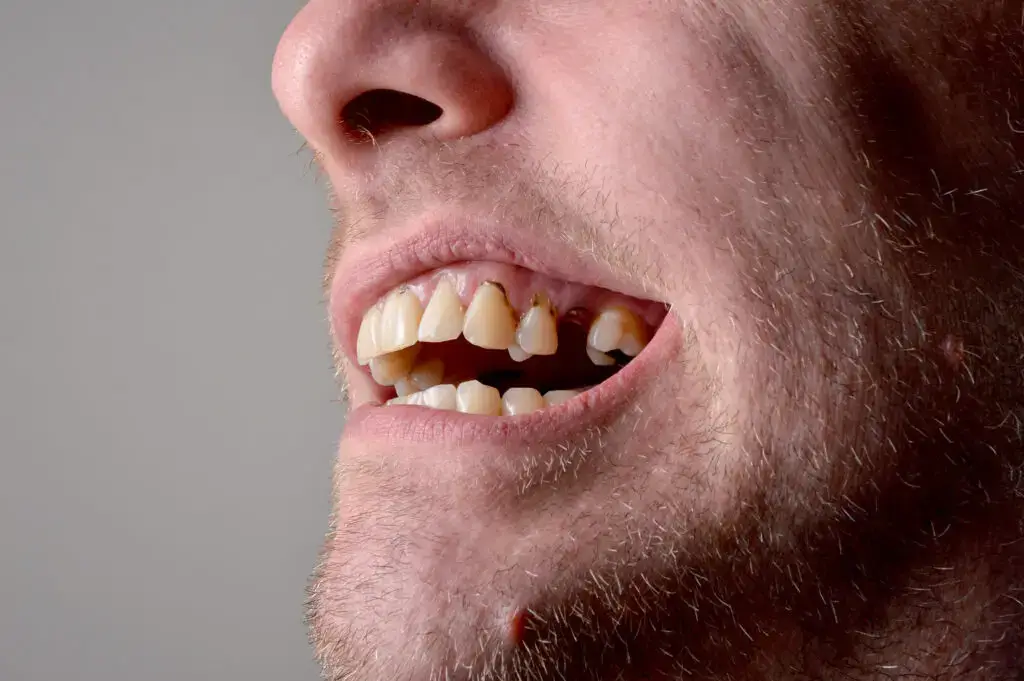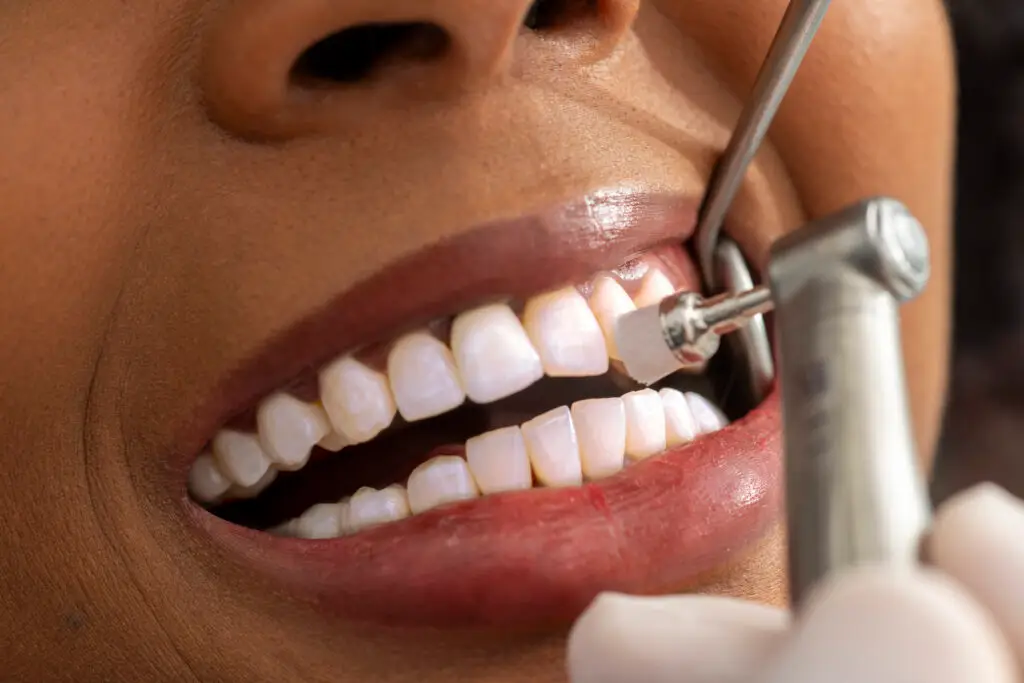Bone Loss is Loss of Hope? Real Causes of Jawbone Loss, Prevention Tips & Solutions

Jawbone loss or maxillary atrophy is usually the result of lost teeth or some gum problem. For example, when a missing tooth is not replaced by a dental implant, which acts as natural teeth roots stimulating the jawbone, this bone starts to disappear over time. That’s why a lot of patients who have used removable dentures or bridges for a long time suffer bone loss in their jaws.
When this jawbone loss expands and affects the rest of the teeth, leading to complete edentulism or missing the majority of teeth, it’s known as severe maxillary atrophy, and it’s the moment in which a lot of patients hear that there’s “no solution” for them. But we at Smile24h are here to show you that there’s always a solution, even in the most complex cases!
What is Jawbone Loss?
A healthy smile without strong teeth is like a house without a foundation. It soon crumbles with disastrous effects like tooth loss, inability to eat and low social confidence. This makes it critical to keep your jawbones healthy and prevent bone loss around your teeth and gums. Yet, sometimes, issues like consistently poor oral hygiene, gum infections, prolonged denture use, underlying diabetes, osteoporosis, etc., do cause bone loss. The solution?
Here’s the good part—bones may break, but knowledge can rebuild them—understanding the causes of bone loss and how to prevent bone loss can help keep your smile going strong for the years to come.

The Real Causes of Bone Loss in the Jaws
Bone loss in the jaw doesn’t happen overnight—it’s a slow and silent thief, taking away volume and density little by little. Let’s look at the diverse reasons that may cause loss of jawbone:
Gum infection or Periodontitis:
Gum infections are the silent killers of oral health. Poor dental hygiene and overconsumption of sugary sticky foods often leave behind food residues in between teeth—the snug area—where the bacteria mature, causing inflamed gums—the first trigger of bone loss.
You begin with initial symptoms like:
- Gum bleeds
- Bad breath
- Sensitive teeth
- Deposits on the teeth that cause discomfort.
If left untreated, the condition worsens to impact the bone underneath. The result? Jawbone loss. Periodontitis or advanced gum disease, is one of the biggest causes of bone loss that eventually leads to tooth loss.
Tooth Loss:
Losing a tooth is no big deal. Or is it?
The jawbone is like a muscle—without use, it starts to shrink. When you chew, the roots of your teeth send signals to your bones, stimulating them to keep the jawbone healthy. Losing a tooth reduces the stimulation initiating bone loss, like an abandoned building slowly falling apart.
Prolong Denture Use:
Dentures are the oldest and a popular option for tooth replacement. While they support your daily functions of eating, speaking and smiling diligently, you’ll often find yourself getting your dentures refitted or remade every 6-10 years.
Why does that happen? Dentures sit on the gums. Over time, their pressure and constant rubbing against the gums cause wear and tear of the jawbone underneath. As the bone shrinks, dentures become loose, leading to sore spots, discomfort, and difficulty eating.
Underlying Health Conditions:
Diseases like diabetes, vitamin D deficiency, osteoporosis, etc., are known to cause deterioration of the jawbone, loose teeth and persistent gum infection. A lot of studies have found that in postmenopausal women, low oestrogen levels have been shown to cause bone loss.
Medications:
Certain medicines are known to boost bone loss as a side effect.
Head and neck cancer treatments like radiotherapy and chemotherapy may result in rampant bone loss. According to some studies medications for osteoporosis, like bisphosphonates, may impact bone health in the long run as an inadvertent side effect.
Bone Loss of Upper Jaw
The upper jawbone (maxilla) is naturally softer than the lower jawbone, which makes it more susceptible to shrinkage after tooth loss. Here’s what accelerates maxillary bone loss:
- Multiple teeth loss
- Complete dentures
Sinus expansion—When the upper back teeth are missing, the localised bone loss causes sinus expansion, further reducing bone volume. This is why many patients need sinus lifts before getting dental implants in the upper jaw.
Bone Loss of the Lower Jaw
- Multiple teeth loss
- Complete dentures
- Removable partial dentures
- Higher incidence of gum diseases
- Sunken face appearance—Advanced bone loss in the lower jaw can cause the chin to appear closer to the nose, giving a typical pointed ‘witch’s chin’ appearance.
5 Ways to Prevent Jawbone Loss

Luckily, bone loss isn’t a one-way street—there are ways to stop further degradation and sometimes to reverse it. Here are the best ways to prevent bone loss:
Prompt Attention
The sooner you address bone loss, the higher the chances of healthy teeth and gums. Whether it’s a missing tooth, regular gum bleeds, uncontrolled diabetes or long-term medications, you must consider these as red flags and visit your dentist soon. Regular dental checkups, teeth cleanings, and a healthy lifestyle are key.
Dental Implants
As the gold standard for missing teeth, dental implants offer the closest replacement to a natural tooth. Unlike dentures, implants integrate or fuse with the jawbone in a process called osseointegration, and mimic the functions of a tooth root by stimulating the jaws. As one of the best bone loss treatments, implants halt and restore bone health.
Bone Grafts
If there is significant bone loss, such as in cases of severe maxillary bone loss and related sinus expansion, adding bone material becomes necessary before dental implant procedures. This is referred to as bone grafting.
Over time, the new material fuses with the existing bone, creating enough support for an implant.
Zygomatic Implants for Dental Bone Loss
Cases of severe maxillary bone loss are often challenging.
It either requires extensive bone grafting and sinus lift procedures or rejects the possibility of getting dental implants. One innovative solution in such cases would be zygomatic implants.
Unlike traditional implants that go into the jawbone, zygomatic implants anchor into the cheekbone (zygomatic bone), which remains strong even after jawbone loss. They help avoid additional surgeries of bone grafting and long healing periods.
You can think of zygomatic implants as deep foundation posts for a house. Even if the ground is weak, the structure stands strong!
Oral Hygiene
Nothing goes beyond oral hygiene. Whether you have bone loss or anticipate it in the near future, brushing your teeth, flossing, using mouthwashes, eating a healthy diet, and thorough health checkups can keep bone loss away.
Takeaway
On a broader picture, bone loss in the mouth impacts the quality of life. Weak teeth stop you from eating your favourite foods, ruin smiles and affect social and professional confidence. So it’s best not to wait until it’s too late. If you act quickly, options like dental implants—zygomatic implants—can be a saviour.
With our ‘patient-first’ philosophy,’ the team at Smile 24h Expert Clinics approaches oral health holistically. From routine exams and comprehensive treatment plans to advanced procedures like zygomatic implants, our certified ZAGA Doctors, plan your smile journey to prevent bone loss at every stage of your dental treatment. From detecting early signs of bone loss to diverse bone loss treatments, Smile 24h prepares your jawbone for the best smiles—keeping it strong and happy!

Dr. Medha Gupta, a Prosthodontist & Implantologist with over six years of clinical experience, is also a Medical Communication Expert working with healthcare firms and solopreneurs in India, the EU, the USA, and Singapore. Her expertise lies in transcribing complex medical and dental information into words that resonate with the audience, our readers. As a healthcare business writer and reviewer, she boosts brand credibility for medical/dental practitioners and HealthTech firms by speaking the ‘founder’s mind’ across marketing and sales platforms.
Still have questions? Find your nearest specialist and discover how we can help improve your quality of life with expert care

